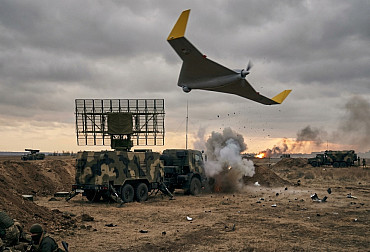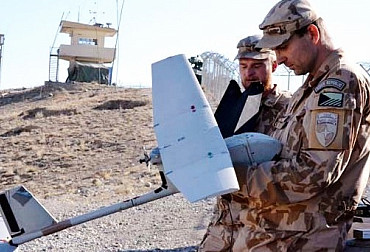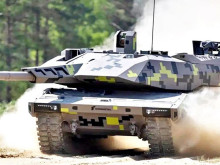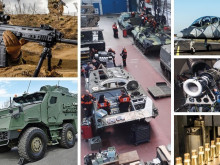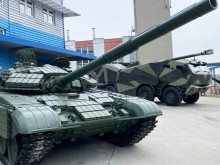Czechs in Africa: A combination of military missions, diplomacy and export offensive
Czech foreign policy towards Africa has undergone a fundamental transformation in recent years. Long perceived as a peripheral region, the continent is now taking centre stage not only in the context of migration, but also as a place of geopolitical rivalry, security interests and economic opportunities. Prague is responding with a combination of military presence, diplomatic initiatives and industrial cooperation. These steps are shaping a new framework for Czech strategy, which is in many ways inspired by the approach of regional powers such as France and Turkey.
President Petr Pavel's trip to Mauritania and Ghana in April was an important symbolic and practical part of the Czech strategy. In Mauritania, the Czech president met with his counterpart Muhammad Uld al-Ghazwani and also visited Czech soldiers who have been in the country since January 2024 as part of a special forces training mission. This mission is part of broader EU and NATO efforts to strengthen stability in the western Sahel, where the influence of radicalised groups and Russian mercenary structures is growing.
President Petr Pavel described the presence of Czech soldiers as an example of concrete security assistance in a region of fundamental strategic importance to Europe. In Mauritania, he also supported Czech companies active in mining, water management and healthcare, which participated in a local business forum. He then travelled to Ghana, where the Czech Republic had not been welcomed at the highest level for more than six decades. In addition to talks with the Ghanaian president, Pavel attended the opening of a hospital built by the Czech company VAMED Health Projects CZ s.r.o. (part of the Austrian group VAMED Engineering) and the ceremonial launch of the Czech House – a showroom for Czech technology and industry. This trip demonstrates that Prague recognises the importance of ‘personal diplomacy’ and the significance of a presence at the highest level.
On the contrary, representatives of another sub-Saharan country, Ethiopia, visited the Czech Republic in mid-May. Ethiopia has one of the largest and most influential armies in the East African region. It is therefore a natural partner for the Czech Republic, not only in terms of development cooperation, but also in the field of the defence industry. Ethiopian Defence Minister Aisha Mohammed Mussa met with her Czech counterpart, Defence Minister Jana Černochová, in Prague on 15 May.
The talks focused on possible forms of cooperation in the areas of training, defence technologies and the modernisation of military equipment. Minister Černochová praised Ethiopia's strategic position in East Africa and pointed out that the Czech Republic has a lot to offer, from aviation technology and cyber security to logistical support. The Ethiopian delegation also visited Czech companies and defence enterprises, demonstrating the interest of both sides in translating political dialogue into concrete cooperation.
If necessary, the Czech Republic can also send military units to Africa. This effective foreign policy tool combines security, diplomatic and economic objectives. The Czech Army's missions in sub-Saharan Africa, particularly in Kenya and Mauritania, show that even a relatively small country can effectively contribute to stability in sensitive regions while improving its own international position.
A Czech special forces training mission has been operating in Mauritania since January 2024. Its tasks include creating a completely new unit capable to face growing security threats in the western Sahel region, particularly from Mali and Burkina Faso. The mission has a mandate until 2026 and involves members of the Czech Armed Forces rotating at intervals of 3–8 months. The training includes tactical operations, working with drones, mobility, mission planning and the creation of a command structure. All this takes place in an environment with minimal logistical support, without an international base and without the support of alliance partners.
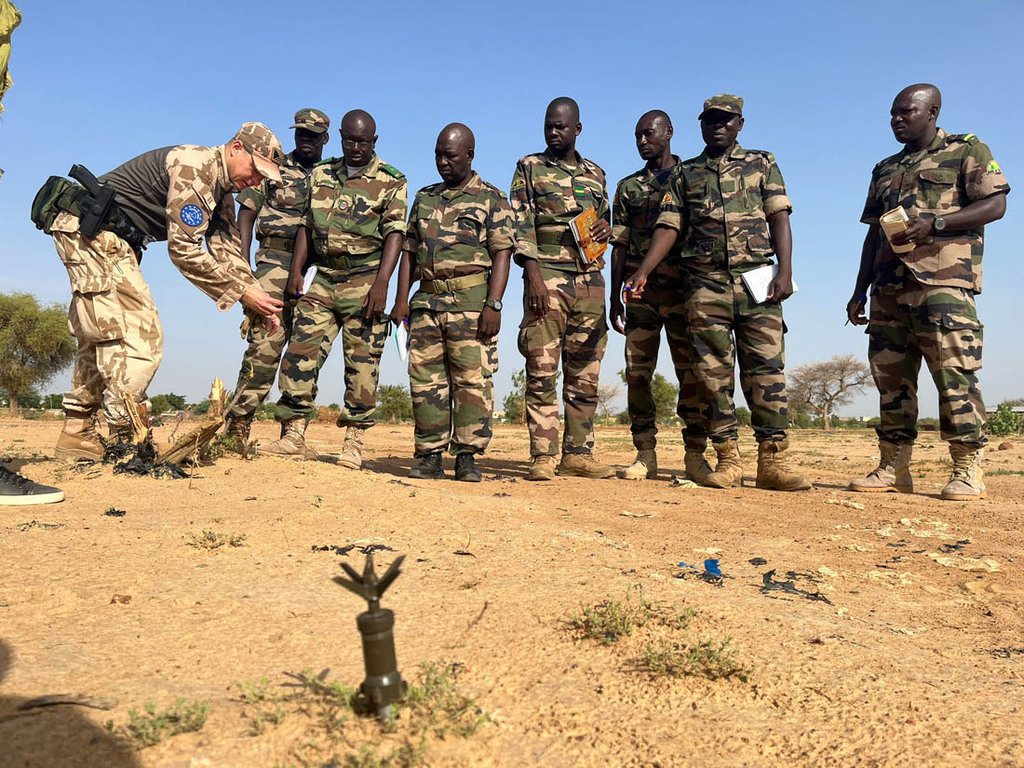
‘We started the deployment from scratch. We are not part of any coalition, so we have to deal with everything – accommodation, food, fuel, medical care. That makes this mission unique,’ said the commander, known by the code name Honza, describing the deployment. Mauritania is considered the last stable bulwark against the spread of jihadist violence and Russian influence in West Africa.
However, the long-term presence of the Czech army in Kenya, where special forces have been operating for thirteen years, represents even greater strategic depth. This mission remained classified for a long time and was not officially disclosed to the public until 2024. The Czechs are training members of Kenyan units designated to fight terrorism in East Africa and on the border with Somalia. The training takes place directly in the field, often in difficult conditions.
‘Our people are operating in a country where different rules, mentalities, and conditions apply. We had to adapt and learn to work differently,’ General Miroslav Hofírek pointed out in an interview with Czech Radio. "And at the same time, we had to gain trust. We succeeded in this, and today we have an open door in Kenya. However, the presence of soldiers there is not just about training. It also opens opportunities for Czech business."
This brings us to the broader role of military missions: they are not only a tool for stabilisation and combating extremism, but also a platform for establishing commercial, technological and political ties. The trust gained and direct contact with the armed forces of partner countries increase the credibility of Czech defence companies, facilitate access to markets and strengthen the Czech Republic's position as a security and technology partner – not just a supplier.
Coordination between the military, diplomacy and industry is absolutely crucial in the case of Africa. Without an active presence and personal ties on the ground, it is difficult to implement ambitious export projects or offer comprehensive training and modernisation packages that are of growing interest to African armed forces. The most visible and ambitious element of the new Czech African strategy is undoubtedly the export offensive of Aero Vodochody with its L-39NG (Skyfox) aircraft. This advanced training and light combat aircraft is a successor to the famous L-39 Albatros model, which was exported to more than thirty countries during the Cold War, seventeen of which are in Africa.
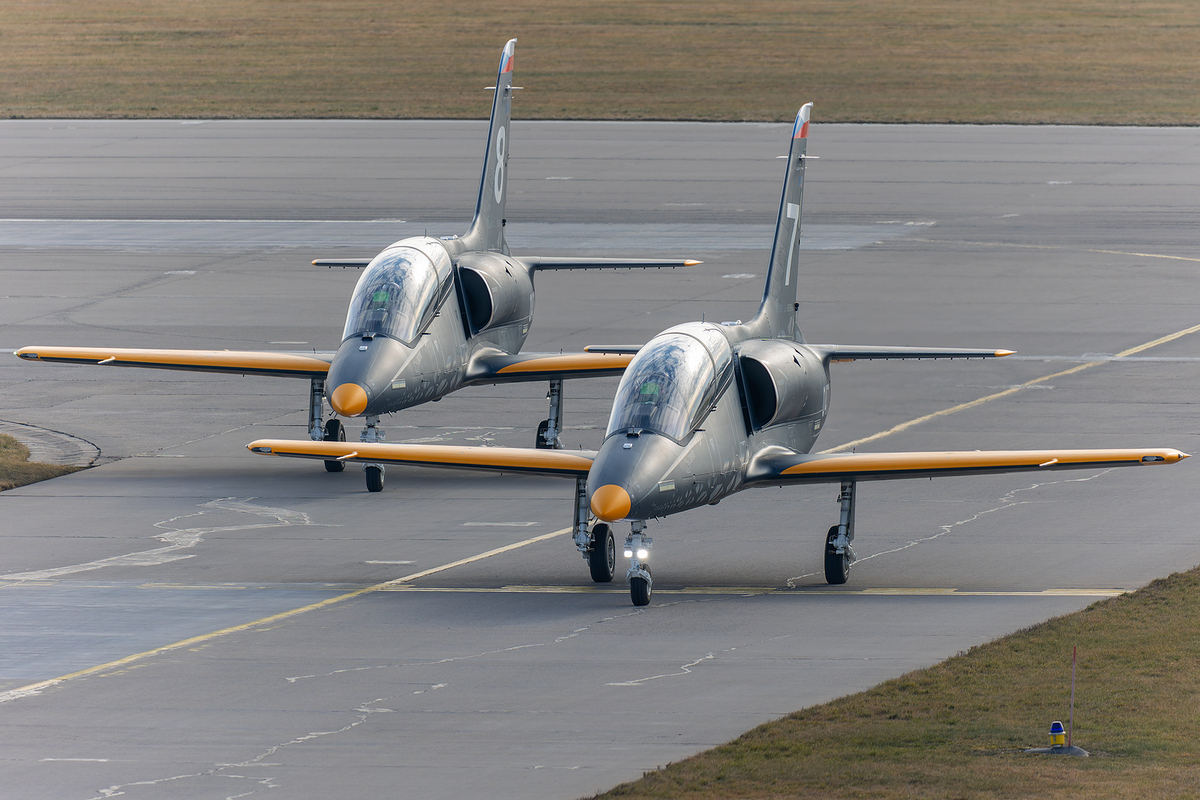
Skyfox is equipped with modern avionics, Western weapon systems and a new American FJ44-4M engine. Aero Vodochody is targeting countries such as Algeria, Angola, Egypt and Nigeria, but also potential new customers in East Africa. In Angola, a contract has already been signed to upgrade four older L-39Cs to the L-39CW version. L-39NG tests are underway in Algeria, Nigeria is considering purchasing new units, and Egypt is ready to host a service and training centre. Business negotiations in Ghana and Senegal have been suspended due to budget constraints, but Czech companies remain in contact with local partners.
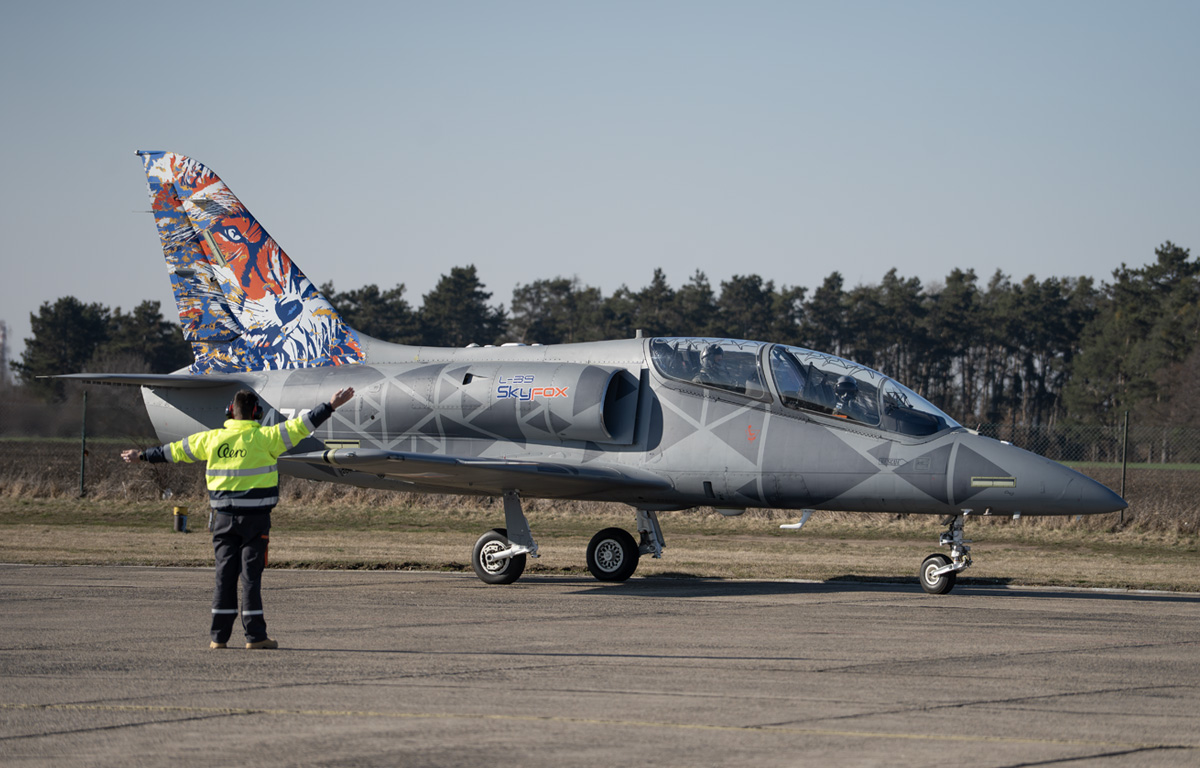
The key question remains whether the Czech Republic will be able to transform individual missions, meetings and contracts into a long-term, sustainable strategy. Africa is not just a place of business opportunities – it is also a place where the interests of major powers collide. China, France, Russia, the UAE and Turkey are systematically expanding their influence. The Czech approach – a combination of historical ties, military presence and technology offerings – can be competitive if it receives long-term political support and coordination. President Pavel and the ministers of defence, foreign affairs and industry are repeatedly returning to the continent with specific projects and an interest in stability. Only time will tell whether this will become a successful long-term policy or just a series of partial successes. In any case, the Czech footprint in Africa is visible again, and this time it could be permanent.













